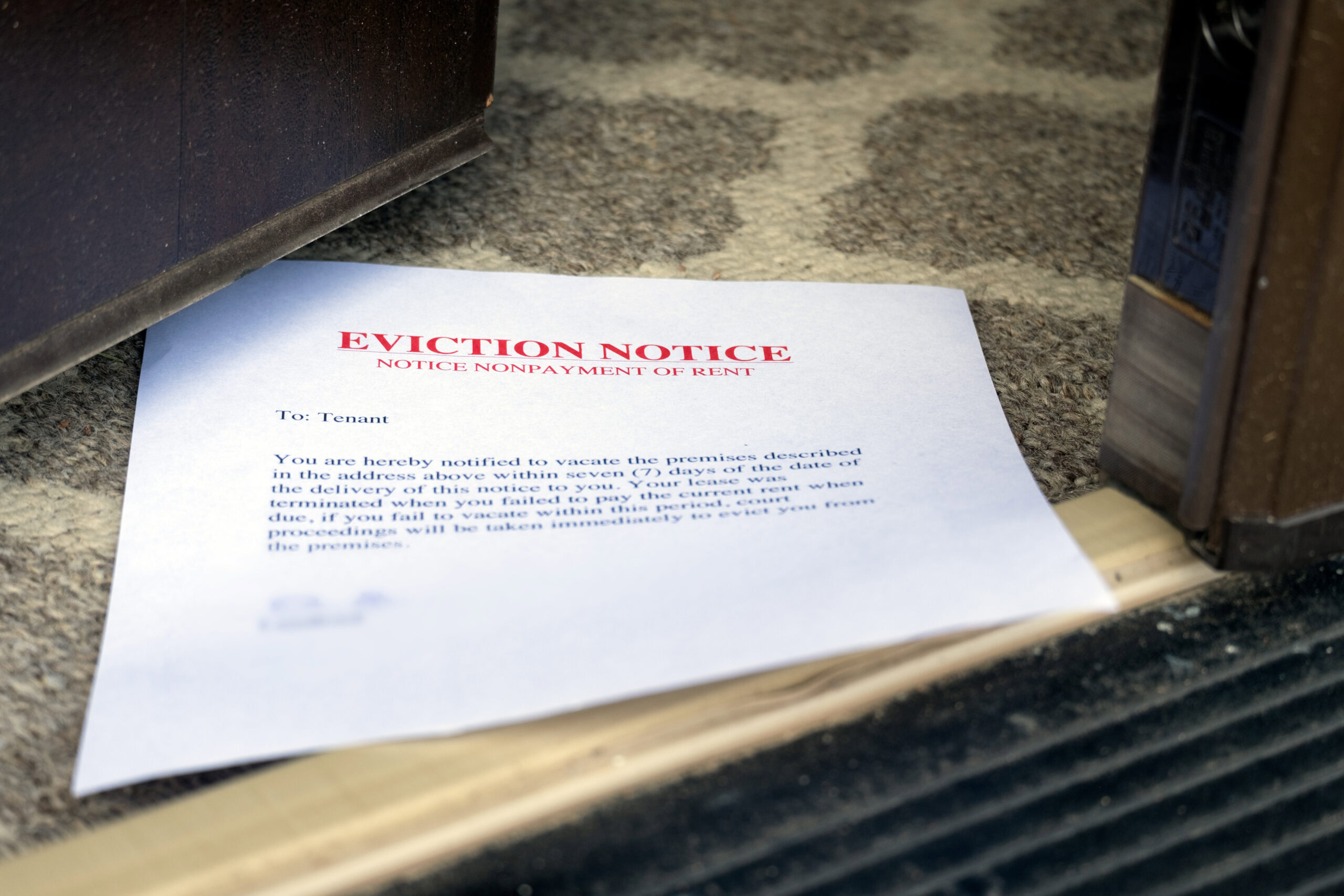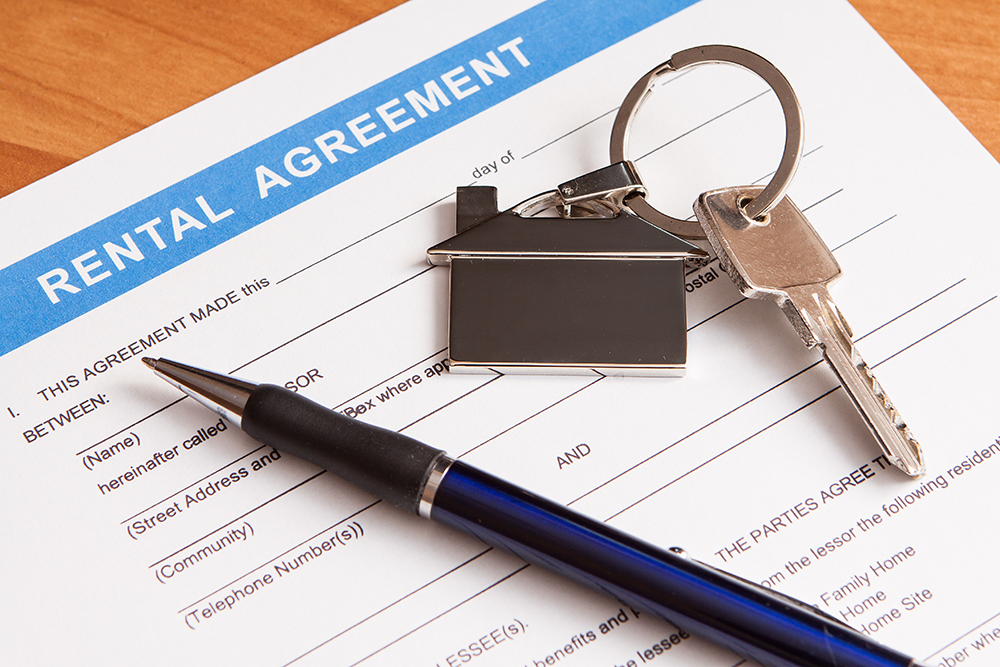As a letting agent you’re likely to have landlords ask what the rules regarding subletting are. It may be that a tenant has asked whether they can sublet, or your landlord’s property has been sublet without their knowledge. Whichever situation, this helpful guide answers some of the most common questions letting agents and landlords may have.
- A definition of subletting
- Is subletting legal?
- What’s the difference between a subtenant and a lodger?
- Is it worth letting a tenant sublet?
- What to do if you discover a tenant is subletting without permission?
- What insurance is needed for residential subletting?
- Insurance when subletting a commercial property
A definition of subletting
Your property is sublet if your tenant rents out all or part of your property to someone else. They may sublet a room or move out and sublet the whole property. The rent gets paid to your tenant, not to you.
However, someone staying in the property temporarily (such as a friend of your tenant) is not a subtenant. Neither is a lodger (see below for more information on this).
My tenant has put my property on Airbnb. Is that subletting?
If your tenant lets out your property by advertising it on Airbnb or similar websites, this counts as subletting.
What about rent to rent?
Rent to rent is a form of subletting, but, crucially, it is always done with the consent of the landlord. Rent to rent is when you let a property to a renter for a certain period. The renter guarantees your rent for this time, but it is generally lower than the market rate. The renter then finds and manages subtenants. It’s an opportunity for the renter to become a landlord without owning a property.
Is subletting legal?
It depends. If a tenancy agreement forbids subletting, it’s illegal for your tenant to do it. However, you can agree to let your tenant sublet and put certain conditions in their tenancy agreement, such as seeking your agreement before subletting the property.
Why you need to be careful about subletting
Even if you agree to let a tenant sublet, you need to be careful. In particular, allowing subletting may break the terms of your mortgage contract, meaning the lender could demand full repayment of the loan. Also, you’re likely to invalidate your landlord insurance policy if you allow subletting without informing your insurer, which could prove costly if you have a claim declined.
If you end up with three or more separate tenants in the same property, it counts as a house in multiple occupation (HMO). This means you have to meet more stringent standards and may even need a special licence. If you don’t have the right licence or meet the relevant standards, you could be taken to court and fined.
What’s the difference between a subtenant and a lodger?
A lodger doesn’t have exclusive use of a room. This means there’s nothing to stop other occupants of the house entering the room, such as when it needs cleaning.
A subtenant has exclusive use of a room (or a property). So, if there’s an external lock on their room or property and they have the keys, they’re a subtenant.
It’s up to you whether you let your tenants have lodgers, but be sure to put any conditions in your tenancy agreement.
Is it worth letting a tenant sublet?
There’s one obvious advantage – subletting means you don’t have to spend time looking for good tenants of your own.
On the other hand, you’re giving up a lot of control over your property. You can’t screen your subtenants, so you could end up with people who damage your property or behave antisocially. Also, your tenancy agreement will only cover your original tenant, not the subletter. This means the subletter is not accountable for damage. In addition, you won’t have the opportunity to build a good relationship with the subtenant – which is one of the cornerstones of good property management.
What to do if you discover a tenant is subletting without permission?
It depends on the precise situation. If the tenant has breached their tenancy agreement by subletting, you can evict the tenant using Section 8, ground 12 (‘Breach of tenancy obligation’).
If the tenant has moved out of the property and sublet it to a third party, they forfeit their tenancy status. In this case, you can simply issue a notice to quit (with a minimum of four weeks’ notice) and don’t need to offer any legal grounds.
Things can get tricky if you find yourself with a property that’s been sublet to multiple people. It’s possible to make them your tenants directly, but this may cause problems with your mortgage and insurance. It’s always best to seek legal advice before dealing with any case of subletting.
What insurance is needed for residential subletting?
If you want to sublet, you’ll need to tell your insurer as most won’t allow subletting on a standard landlord insurance policy. Your insurer will be able to discuss the insurance options available to you to ensure that you get the right policy for your situation which covers your risks.
It is also worth considering taking out legal expenses insurance, which can provide cover when your tenant has breached the tenancy agreement, including illegally subletting your property. These policies also give you access to a 24/7 legal advice helpline that will provide guidance on a range of matters relating to being a landlord (not just insurance related).
If your tenants sublet without your knowledge, your landlord insurance should cover you as long as it’s clear you were unaware. If you conduct regular property inspections, you should find out relatively quickly, though. If you do find the property is being sublet, let your insurer know immediately even if you don’t need to make a claim.
Insurance when subletting a commercial property
Subletting in commercial property is more common, but as the landlord you must still tell your insurer if that’s the case. The subletter may be in an industry with a very different risk profile, which could affect your commercial property insurance premiums.
If your tenant sublets without telling you, tell your insurer as soon as possible to avoid invalidating your policy. As with residential property, regular inspections should uncover any instances of subletting.
This article is intended as a guide only. Please note that legislation does change, it is always best to check the most up to date guidance on gov.uk. Most landlord insurance policies arranged by Alan Boswell Group also have access to a legal advice helpline where policyholders can seek further advice.






























































